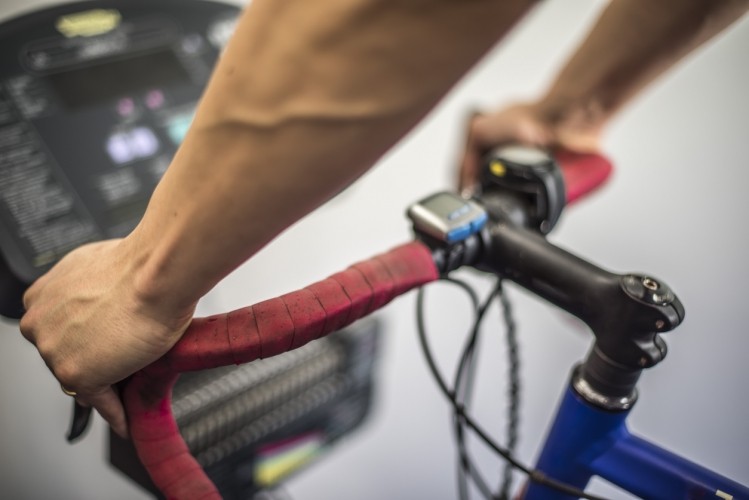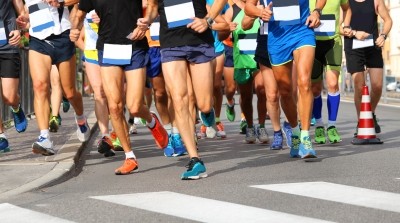Does gut microbiome activity personalise response to exercise?

Findings from the small study points to individual gut microbiota diversity as key to achieving the beneficial metabolic effects of exercise such as improvements in glucose levels and insulin sensitivity.
“This finding, together with our demonstration of the predictive value of baseline microbial signatures for individualised responsiveness to exercise, may facilitate clinical implementation of personalised lifestyle intervention for diabetes management,” says the researchers.
Evidence points to gut microbiota dysbiosis as significant in the onset of insulin resistance and Type 2 diabetes (T2D) through a number of mechanisms.
These include increased gut permeability, changes in short-chain fatty acids (SCFAs) and branched-chain amino acids (BCAAs) production and disturbances in bile acid metabolism.
Gut microbiota changes have been seen in those with T2D and prediabetes where faecal microbial transplantation from healthy donors into patients with metabolic syndrome results in increased microbial diversity and improved glycaemic control, as well as insulin sensitivity.
Recently, a modulatory effect of exercise on gut microbiota in both humans and animals has been observed.
The microbiome of professional athletes exhibits higher diversity and more favourable metabolic capacity compared to sedentary counterparts
However, whether and how alterations in gut microbiota are functionally involved in the metabolic benefits of exercise remain obscure.
Probiota 2020
The rapidly evolving universe of probiotics, prebiotics and the microbiome will be propelled into the new decade at the upcoming Probiota 2020 summit in Dublin on February 10-12.
From advances in microbiome research, to start-up game changers, key market stats, crucial clinical science and regulatory knowledge, attendance is a must-have for those in the prebiotic, probiotic and microbiome sectors.
Will you be joining your peers in one of the world’s greatest cities?
General study design
The team from Germany’s Hans Knoll Institute and the University of Hong Kong began work on 39 overweight males with prediabetes.
Eligible subjects were randomly assigned to exercise or sedentary group. Aside from exercise training, all participants recruited were instructed to continue their normal routine and not make any changes to their habitual physical activity and diet.
One-to-one interviews with a validated questionnaire including nutritional intakes and physical activity was conducted every month to assess their adherence.
Faecal samples were collected at baseline and 12 weeks after exercise training while fasting plasma samples were collected every 4 weeks.
Results revealed the microbiome of exercise responders (sample size -14) showed improved production of of short-chain fatty acids and catabolism of branched-chain amino acids,
Non-responders to the exercise programme (sample size – 6) were characterised by increased production of metabolically detrimental compounds.
Faecal microbial transplantation from responders, but not non-responders, mimicked the effects of exercise on alleviation of insulin resistance in obese mice.
In addition, a machine-learning algorithm integrating baseline microbial signatures accurately predicted personalised glycaemic response to exercise in an additional 30 subjects.
Prevotella copri
“Responders were characterised by a decreased replication rate of Prevotella copri, a main bacterium responsible of producing BCAAs and a contributor to insulin resistance,” the study outlines.
“We also observed an increased growth rate of several species in Bacteroides genus, most of which are propionate producers.
“Collectively, these findings suggest that exercise intervention exerts differential modulatory effects on microbial compositions in responders and non-responders.”
Further analysis showed that non-responders’ gut microbiota exhibited increased production of colonic gases and toxic compounds which are thought to attenuate the beneficial effects of exercise on glucose homeostasis.
The team compared the non-responders’ gut microbiota after the 12-week exercise programme as comparable to that of sedentary controls in the study.
Source: Cell Metabolism
Published online: doi.org/10.1016/j.cmet.2019.11.001
“Gut Microbiome Fermentation Determines the Efficacy of Exercise for Diabetes Prevention.”
Authors: Yan Liu et al.















